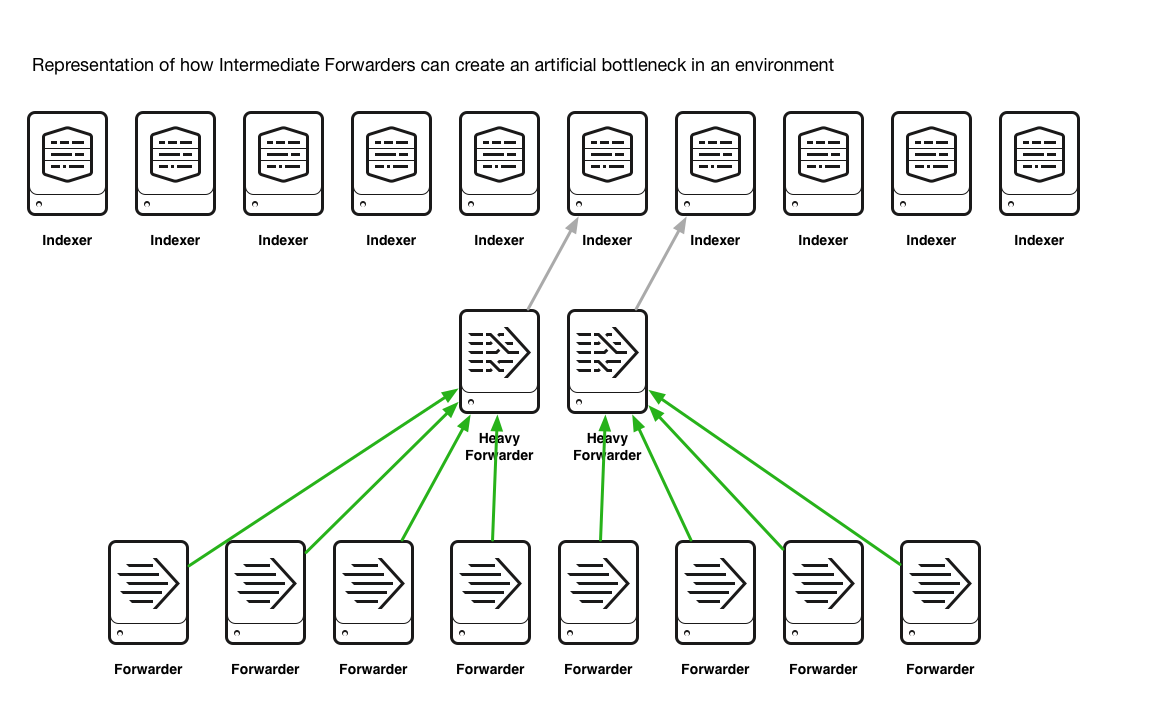

- #SPLUNK UNIVERSAL FORWARDER INPUTS.CONF INSTALL#
- #SPLUNK UNIVERSAL FORWARDER INPUTS.CONF PASSWORD#
- #SPLUNK UNIVERSAL FORWARDER INPUTS.CONF LICENSE#

Do at least one of the following two steps:.
#SPLUNK UNIVERSAL FORWARDER INPUTS.CONF PASSWORD#
Check Generate random password to let Splunk generate a password for you. Create a username and password for your Universal Forwarder administrator account.(Optional) Select one or more Windows inputs from the list and click Next.See "Install as a low-privilege user" for information about securing your system when installing as a local user. As a best practice, run the Universal Forwarder as the Local System user and click Next.On the Certificate Information page, click Next as a best practice.(Optional) In the Destination Folder dialog box, click Change to specify a different installation directory.To change any of the default installation settings, click the "Customize Options" button.
#SPLUNK UNIVERSAL FORWARDER INPUTS.CONF LICENSE#
Select the Check this box to accept the License Agreement check box and the check box for either Splunk Enterprise or Splunk Cloud. The first screen of the installer should pop-up.Double-click the MSI file to start the installation. Download the universal forwarder from.
#SPLUNK UNIVERSAL FORWARDER INPUTS.CONF INSTALL#
See the following steps to install a Windows universal forwarder from an installer: Install a Windows universal forwarder from an installer The installer is recommended for larger deployments, and the command line is recommended for smaller deployments: Input processors but this behavior is not guaranteed in all cases.If you are a Windows user, you can either install the Universal Forwarder using an installer or the command line. * Defaulting these keys in most cases will override the default behavior of Generally only useful as a workaround to other product issues. * Defaulting these values is not recommended, and is To their metadata names such as host -> Metadata:Host * Inputs have special support for mapping host, source, sourcetype, and index * The currently-defined keys which are available literally in inputs stanzas * The list of user-available modifiable pipeline keys is described in * Pipeline keys in general can be defaulted in inputs stanzas. Under the global settings it says: # Pipeline Key defaulting. The documentation is a little confusing on this: Also, I had to deploy a systemd override/drop-in config for splunkd to ensure splunk forwarder is started only after my cloud-final, as I'm using cloud-init per-instance start scripts for this instance-start-time configuration hack, but YMMV for other folks.) ( What I'm currently doing is running a cloud-init script at start to assemble all of the tags and inject them into the _meta field on my nf of forwarder. Would be awesome if we can either provide this tags from a file. We run hosts in AWS EC2 and we have several tags on our instances which identify things like server-type (api, worker, etc), environment (prod, staging, dev, etc), and additionally things like instance_id, aws region, etc. Seems like most folks are having to hack on _meta (and then on nf and possibly elsewhere). additional fields) to all events of a certain sourcetype/source, or even globally, (all events sent from this host), from a Universal Forwarder is something which needs first class support and documentation. I think a better/easier way for us to add indexed "tags" (i.e.


 0 kommentar(er)
0 kommentar(er)
